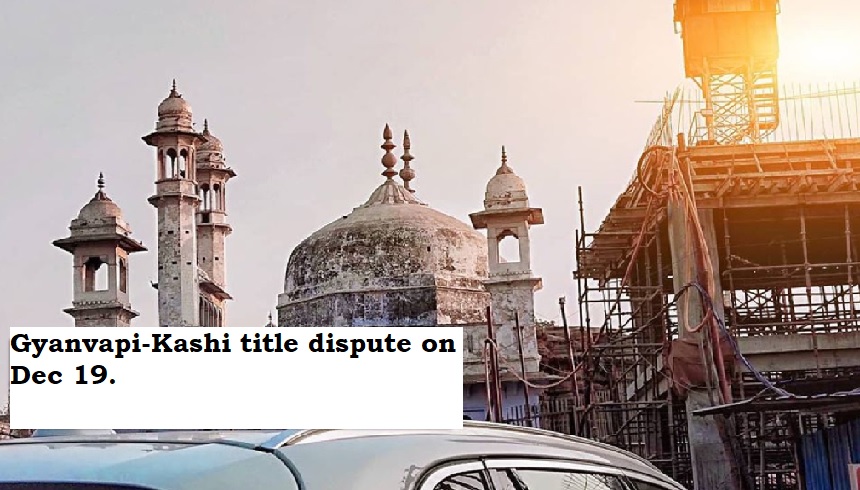


In the ongoing legal saga of the Kashi Vishwanath-Gyanvapi land title dispute, the Allahabad High Court is set to announce its verdict on December 19. The case involves multiple petitions, including one challenging a 1991 civil suit filed by Hindu worshippers seeking the right to worship in the Gyanvapi mosque.
The civil suit, currently pending in a Varanasi court, aims to restore an ancient temple at the disputed site, currently occupied by the Gyanvapi mosque. The petitioners argue that the mosque is an integral part of the temple. However, the Anjuman Intezamia Masajid Committee, which manages the Gyanvapi Mosque in Varanasi, and the UP Sunni Central Waqf Board contest the suit, asserting that it is prohibited by the Places of Worship Act (Special Provisions) Act of 1991.
The Places of Worship Act, enacted in 1991, seeks to maintain the religious character of places of worship as it existed on August 15, 1947. It aims to prevent the filing of lawsuits to alter the religious nature of any place of worship and provides for the maintenance of the religious character of such places.
Last month, the Supreme Court declined to interfere with the order issued by Allahabad High Court Chief Justice Pritinker Diwaker (now retired). The order transferred the Kashi Vishwanath-Gyanvapi Mosque dispute cases from the bench of Justice Prakash Padia to Justice Diwaker's bench. The three-judge bench, led by Chief Justice Chandrachud, justified the transfer by highlighting that Justice Padia had not delivered the judgment despite reserving it in 2021 after seventy-five hearings.
The Supreme Court emphasized that the Chief Justice's decision to transfer the cases was made in the interest of judicial propriety, judicial discipline, transparency in case listing, and overall fairness in the adjudication process. The move aimed to expedite the resolution of the long-pending dispute.
On August 11, the then Chief Justice Diwaker passed an administrative order withdrawing the Gyanvapi title dispute cases from Justice Prakash Padia's bench. The reasoning behind the withdrawal was to uphold judicial propriety, discipline, and transparency in case management.
The Kashi Vishwanath-Gyanvapi land title dispute has been a matter of contention for years, with multiple legal twists and turns. The upcoming verdict by the Allahabad High Court on December 19 will be a pivotal moment in determining the fate of the disputed site and addressing the competing claims of Hindu worshippers and the managing committee of the Gyanvapi Mosque. The legal backdrop, including the Places of Worship Act, adds complexity to the case, and the Supreme Court's recent decision to uphold the transfer of cases underscores the importance of resolving the dispute in a fair and timely manner.
TAGS: Allahabad High Court Verdict Land title dispute Civil suit Hindu worshippers Gyanvapi mosque Varanasi court Ancient temple